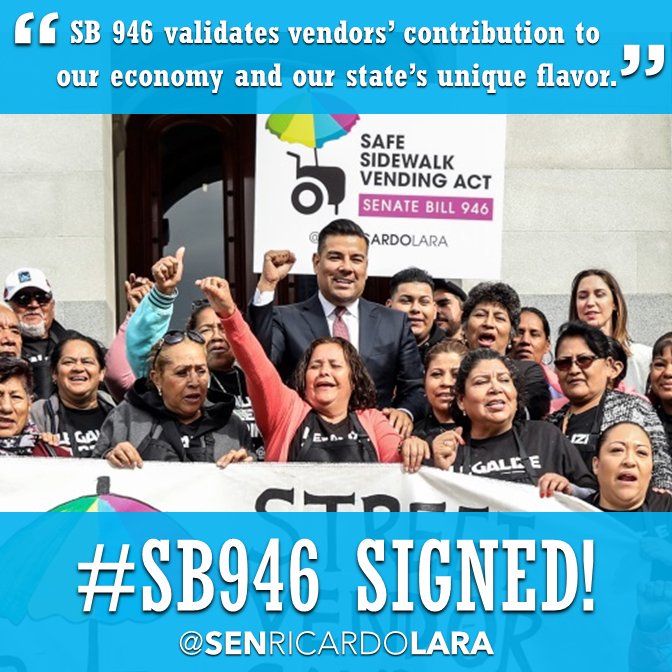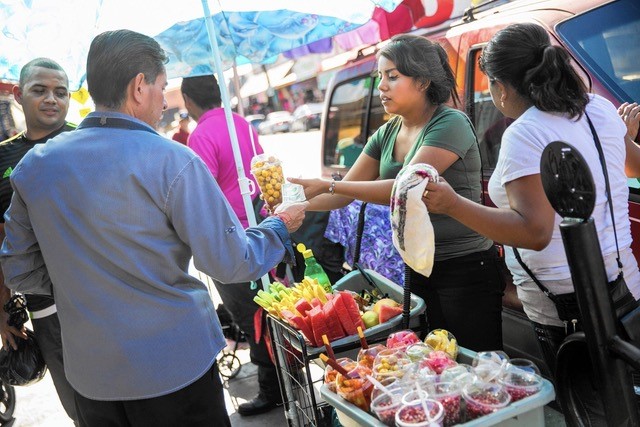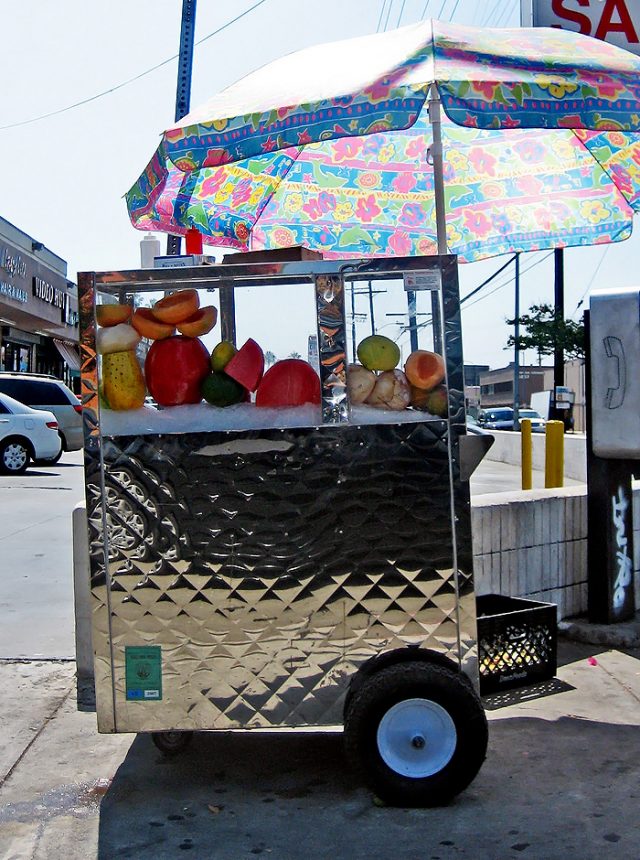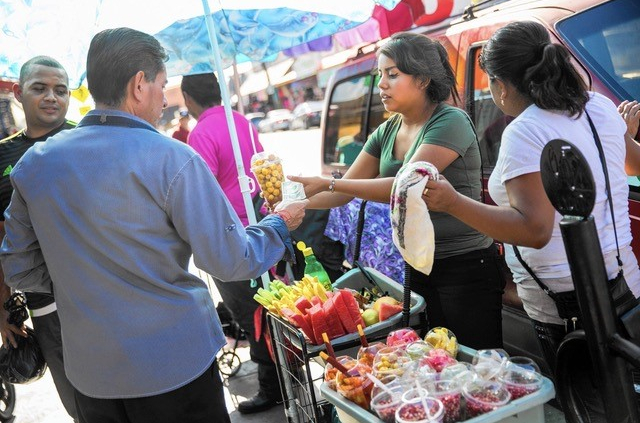BEWell Policy Corner: Street Vending in LA
From fresh fruit, tacos, and even Tupperware, all kinds of items are sold by 50,000 street vendors around Los Angeles. Until recently however, most of this activity was considered illegal. On September 18 of 2018, governor Jerry Brown enacted SB 946, Safe Sidewalk Vending Act, which puts the authority to regulate street vendors in the hands of local city governments. The bill goes into effect in January 2019 and effectively legalizes street vending. In response, the Los Angeles City Council unanimously passed its own bill on November 28 to create a permit system vendors can apply through to reserve their own spaces and sell goods. This is the first regulatory measure of its kind in Los Angeles, despite many other cities already having one.

Photo from Ricardo Lara’s Instagram
Although they work all over the city generating $504 million a year collectively, street vendors have been forced to operate under a shadow of doubt. They’ve also been historically overlooked by planners when designing city streets. For example, LADOT’s Complete Streets plan in 2015 seemed to include every factor in relation to smart growth except for vendors. Most of the controversy surrounding street vending stems from its effect on surrounding businesses. Many businesses complain that street vendors unfairly saturate the market because they don’t have to pay taxes or rent. However, street vendors actually benefit local communities in three main ways:
1. Economic Benefits
Street vending is largely a response by those who are excluded by the formal sector, often immigrants and people of color, to earn an income. This is one of the reasons items sold by them are usually cheaper. There is great potential for growth, however, when circulating this income throughout the local economy. As vendors sell more and more food and goods, their demand for supplies will increase as well. If they choose to purchase these goods locally, then those suppliers can also benefit from the increased demand.

Glodavina Lopez, center right, sell fruits and helps her mother Lili Lopez, right, a street vendor for the past 17 years, in the Fashion District in Los Angeles. (Marcus Yam / Caption and Photo from the Los Angeles Times)
2. Activation of Public Space
Aside from providing financial benefits, street vendors also have the potential to activate public spaces. Before massive developments, street markets dominated city landscapes and lives of people who lived in them. According to Ethan Kent, Vice President of the Project for Public Spaces, “when supported and showcased, street vendors, and the life they support, can help create iconic places that are cultural drivers that define cities.” Food has proven to be a great tool for human bonding, so vendors who sell these items are especially helpful to public spaces in cities.
3. Food Security
Food vendors not only activate public spaces, but also help feed underserved communities, especially in food deserts. Food deserts are areas without accessible supermarkets within a 1 mile radius. Typically, these landscapes are dominated by fast food restaurants. As a result, people living in these areas are more likely to be afflicted by public health issues like obesity and heart disease. Vendors, on the other hand, can help fill the void in these areas, especially since there are no current policies encouraging grocery store development and limiting the proliferation of fast food restaurants.

Photo by Nate Gray
My personal favorite street vendors are fruit stands. They provide healthy options with a local twist. Being from a different part of the county, I had never tried fruit with spices or lime juice on top. Eating at fruit stands also helps me connect with people in my community that I might otherwise not come in contact with. In Westwood I recommend stopping by El Jefe Fresh Fruit usually on Westwood Blvd. and Ashton Ave. or Westwood Blvd. and Le Conte Ave. By supporting street vendors, we help revitalize the local economy, activate public spaces, and increase access to healthy food – in Westwood and beyond.


